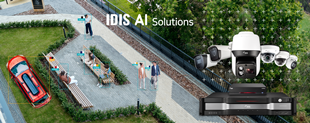The OCF UCI is a programming interface that can be used to standardise connectivity between different manufacturers’ cloud servers, and between devices and the cloud. This cloud application programming interface (API) helps the IoT industry to streamline partnerships and avoid implementing and maintaining numerous proprietary programming interfaces at once.
These devices on display at the event are due to complete OCF 2.1 certification in 2020, ensuring robust and secure connectivity between devices. Many of these and other industry-leading OCF member companies will be commercially launching products based on the OCF specification in 2020.
Research shows that revenue from the smart home market is expected to show an annual growth rate of 17.6 percent, resulting in a global market volume of more than $141 billion by 2023. As the smart home market continues to rapidly grow, secure interoperability will be key in making the IoT successful. The OCF Certification Program helps manufacturers create products that “just work” with other OCF Certified IoT devices regardless of their form factors, operating systems, service providers or transports. OCF’s 2.1 specification, a recognized ISO standards specification, ensures this interoperability is built into all OCF Certified devices.
The OCF supports standardised procedures for bridging to other IoT ecosystems and provide detailed implementations for Bluetooth, Enocean, Zigbee and Z-wave protocols.
“In the near future, smart homes and buildings will have typically over 200 different products improving comfort, security and energy usage. Having all of these powered by mains cables or batteries which need to be regularly changed or re-charged is simply not practical,” said Jörg Hofmann, CEO, BSC Computer GmbH. “By introducing the Enocean energy harvesting wireless standard into the OCF world, BSC Computer has enabled simple addition of multiple ‘peel and stick’ maintenance-free sensors and switches into their smart buildings via the BSC smart secure gateway, a major expansion and improvement of the excellent interoperable OCF eco-system.”
“As a founding member of the OCF, over several years we have contributed much to deliver a standardized IoT solution to the market,” said Hyogun Lee, head of R&D, Visual Display Business, Samsung Electronics. “We anticipate that the OCF Universal Cloud Interface can resolve the current IoT market fragmentation and thus build the unified IoT ecosystem.”
Developing and maintaining proprietary APIs when companies collaborate requires visibility and/or control between devices and services on both companies’ clouds. This is expensive in both time and money. As the number of IoT devices expands and the need for seamless operation between different manufacturers’ systems grows, the proprietary approach does not scale and thus slows the growth of the ecosystem. The OCF UCI is an industry-standard cloud API, solves this issue and can be used for communications with a plethora of collaborating companies.
The OCF UCI is based on the OCF’s proximity framework that enables communication between IoT devices and applications over a local network. It uses the same data models and core technology. As with OCF proximity communications, an open source implementation is available.
















